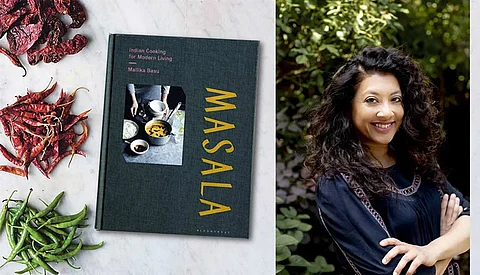

The word “curry” has emerged as a bone of contention for South Asians in amidst an ongoing love of creamy saag aloo, pillowy naan bread and steamy pilau rice. Long been used incorrectly, it has recently exposed the bitter truth about attitudes to commercialising what minoritised cultures hold dear and the need for sustained research and respect.
Food writers like me often lose our appetite over this. Last week I attempted to privately educate a chef about a “curry night” they were hosting with food from “across India” that featured recipes from Pakistan and Sri Lanka. An issue close to my heart, prolific food blogger Chaheti Bansal recently propelled it to headline status with calls for people to stop referring to all Indian food as curry. This quickly sparked articles in mainstream media asking if the word curry is racist.
MORE LIKE THIS…
The seemingly unpalatable truth about curry is that delicious, it is. Indian it is not. Using it to describe all Indian cuisine is ignorant at best, stupid at worst. Firstly, the word has a meaning. It is used by Indians and more to describe the liquid part of a dish, or dishes with the same. Secondly, it is also testament to the hard graft of Bangladeshis who created what the beloved cuisine restaurateur Iqbal Wahhab calls “British-Born Curry”. To confuse and conflate this with the food of a whole nation or to use it as a generic reductive term because the impetus to invest the time, energy and research doesn’t exist, is no longer easy to digest.
A giant post-colonial hangover is partly responsible for this textbook illustration of cultural appropriation. Cultural appropriation is often considered as a row over retaining authenticity, which it isn’t (what is authentic anyway?). It is about commercialising a culture that is not your own and then mistreating, mishandling it without duly acknowledging, platforming or monetising the culture you’re extracting from. It almost always implies a dominant culture stealing, snatching, taking by force from those that have been subjected to colonialisation, extraction, economic subjugation, and, in the case of African cultures, enslavement.
MORE LIKE THIS…
India, in fact, is no stranger to welcoming new tastes and flavours from visitors, traders and colonisers into its palate. We have been culturally inspired for centuries – Anglo-Indian food, Indo-Chinese cuisine, “Continental” dishes are all cases in point as are the ingredients and techniques we adopted over centuries. Our flavours, similarly, are open to everyone. However, ignorance is no longer excusable, and education must underpin cultural inspiration and creativity in the food industry.
Can you imagine a well-known chef hosting a European dinner of cuisines from across Italy, with the menu featuring recipes from Spain and Germany? If it takes years to master French cooking, a fleeting holiday in Kerala cannot make you an expert in the foods of India. The idea of ‘Indian food’ itself is a misnomer since the nation has such a vast range of cuisines across it which are region and community specific. There are few South Asians who don’t roll their eyes about “chai tea”, “pilao rice”, “naan bread”, “lentil dhal”, and yet these examples of tautology are rampant. It’s not what you do, it’s how you do it.
MORE LIKE THIS…
This is where a redistribution of power in terms of who gets to lead such food-related discourses is so needed. We live in a world increasingly demanding more accountability and awareness of social injustices. People from marginalised and minoritised cultures are no longer going to sit and watch crimes being committed against our food.
It might be a bitter pill to swallow, but now is the right time to do it.
Mallika Basu is a food writer, spice entrepreneur and industry consultant advising on the role of food in society, culture, diversity and the post-Covid economic agenda. She is the author of ‘Masala: Indian Cooking for Modern Living’ and her spices are available on SIZL Spices and Amazon UK.
*Info: Subscribe to More Than Curry